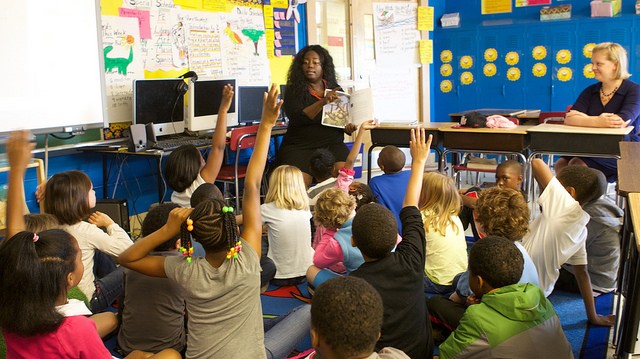Enough with the obsession with test scores; schools must first teach collaboration

School plays a fundamental role in the education of children, but not only due to the subjects and concepts that children have both the duty and the opportunity to study.
In fact, it represents one of the first forms of community, with members unrelated to the family group and decidedly more numerous than the family.
Therefore, school is one of the first social platforms, where children develop the ability to build interpersonal relationships and learn those behaviors and attitudes that favor a peaceful coexistence.
Consequently, some sociologists feel that schools should refuse to promote a competitive social model, opting instead for one that focuses on collaboration.

US Department of Education/flickr
Although most teachers are aware of the importance of collaboration, school often lends itself to a competitive model - sometimes also involuntarily. Examples are the following two tendencies, which some feel should be appropriately reviewed in order to promote didactics based on the principle of collaboration.
The first case is represented by standardized test scores which were created to obtain uniform data about the national territory - on the basis of which to then plan policies and educational programs, but these tests are often regarded as a competition between pupils and schools, who perceive them as a race to see who gets the highest scores. Given the significance of these types of tests and scores, it is important, more than anything else, to change the stereotypes and the perceptions that surround them.
Secondly, one could argue that test scores and grades act as an incentive in such a competitive system (and this is something about which Montessori would have had something to say). In fact, often the trouble is generated by parents, who want to know not only the test results of their children but also those of their classmates. For them, their child, in fact, must be the best, or at least among the first. In this way, they encourage children to perceive school and study as a system of comparisons and rankings.
While waiting for school institutions to make this necessary change of principle, we must start small, at home, to promote collaboration, abandoning certain bad habits like trying to be first at all costs. Let's not forget that many people who changed history with their discoveries were by no means always the best in school.





